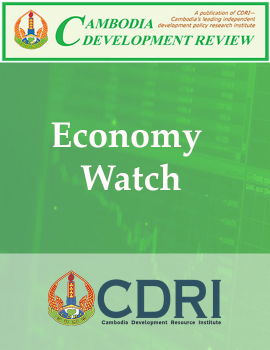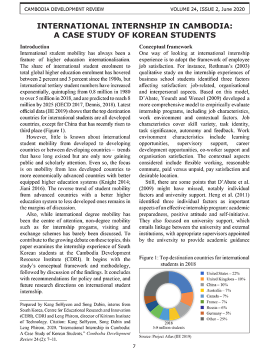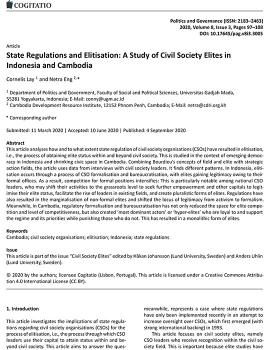
State Regulations and Elitisation: A Study of Civil Society Elites in Indonesia and Cambodia
This article analyses how and to what extent state regulation of civil society organisations (CSOs) have resulted in elitisation, i.e., the process of obtaining elite status within and beyond civil society. This is studied in the context of emerging democracy in Indonesia and shrinking civic space in Cambodia. Combining Bourdieu’s concepts of field...
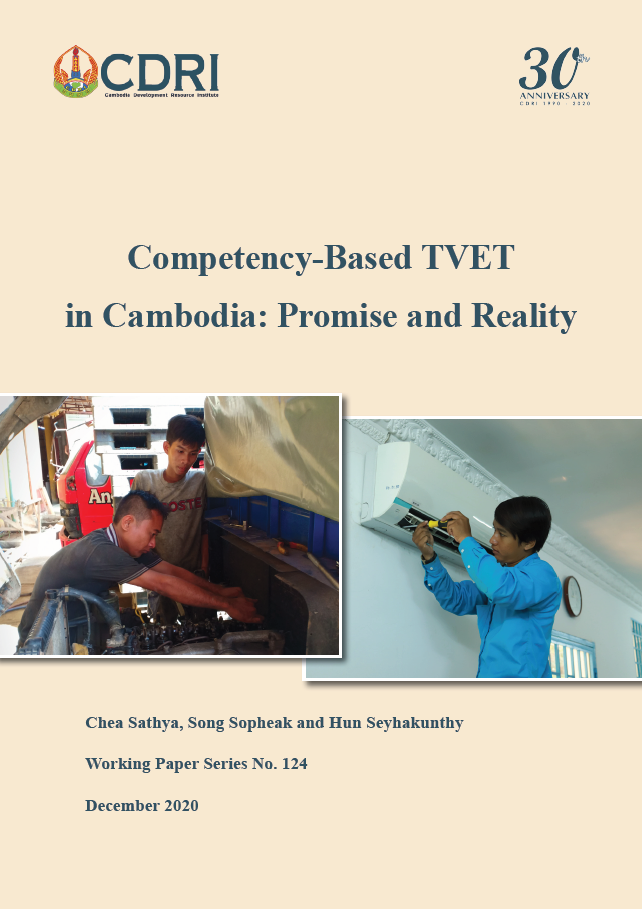
Competency-Based TVET in Cambodia: Promise and Reality
This study examines the development and implementation of competency-based training (CBT) in Cambodia’s technical and vocational education and training (TVET) sector. Introduced to align education with labour market needs, CBT emphasises student-centered, practice-oriented learning and flexible, modular curricula. Despite its potential, CBT impleme...
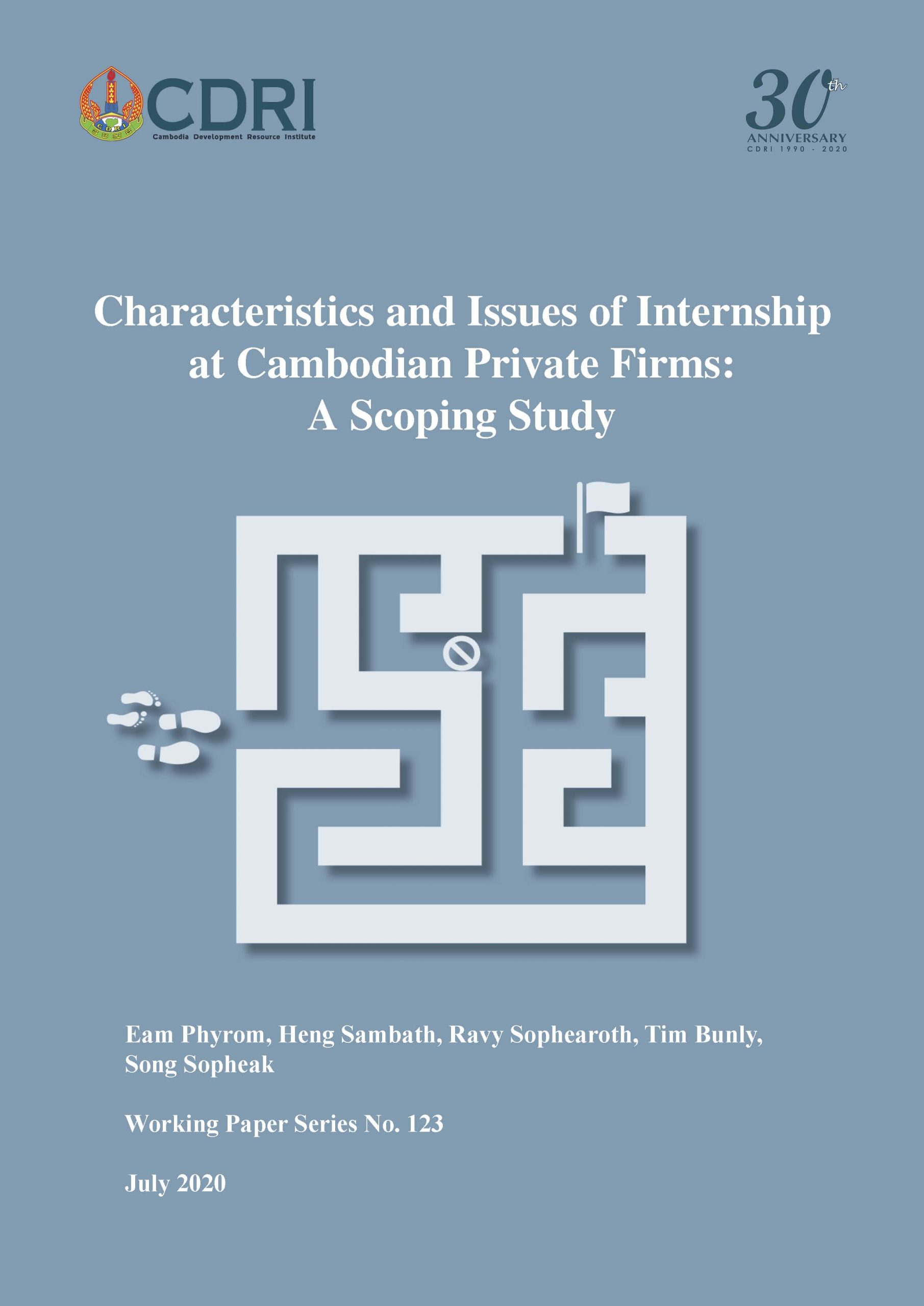
Characteristics and Issues on Internship at Cambodian Private Firms: A Scoping Study
To address the problems of skills mismatch, skills gaps and low-skilled labour that is hindering Cambodia’s economic development, the RGC issued the 2017 Internship Policy. Part of a larger endeavour to link providers of Technical and Vocational Education and Training (TVET) to private firms, the project aimed to give TVET students real, workbased...
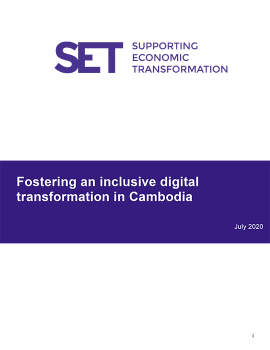
Fostering an Inclusive Digital Transformation in Cambodia
Digitalisation in Cambodia is rapidly taking place but has had different results and provided varying opportunities across varying economic sectors. While digitalisation assists in advancing economic and social terms in Cambodia, public and private sectors, as well as different economic classes are receiving unequal benefits from improvements in di...
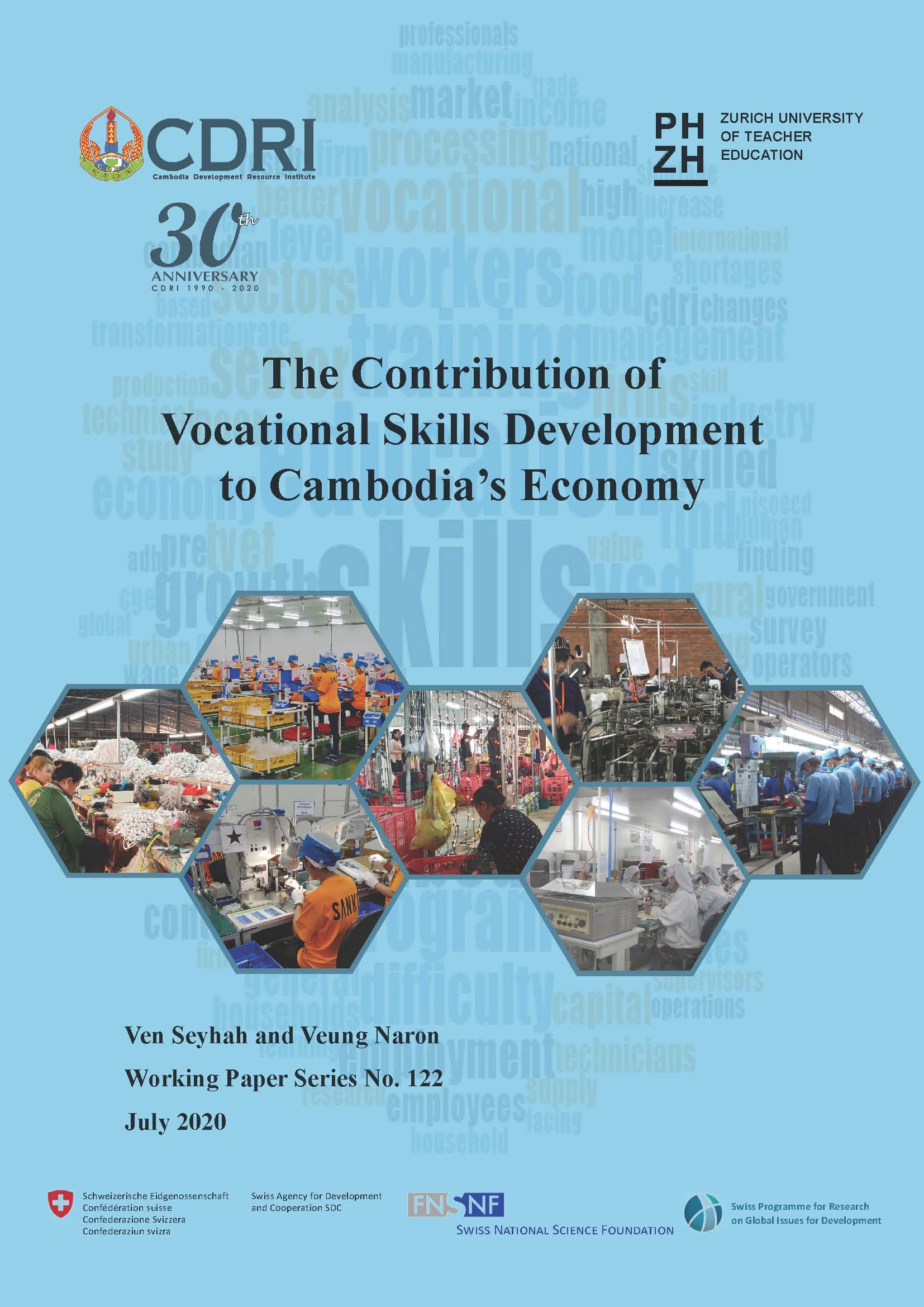
The Contribution of Vocational Skills Development to Cambodia’s Economy
This study investigates the role of vocational skills development (VSD) in addressing Cambodia’s industrial labour shortages and its broader economic impact. Using firm-level survey data from 101 companies in the garment, food processing, and electronic and electrical assembly sectors, alongside a Computable General Equilibrium (CGE) model, the res...
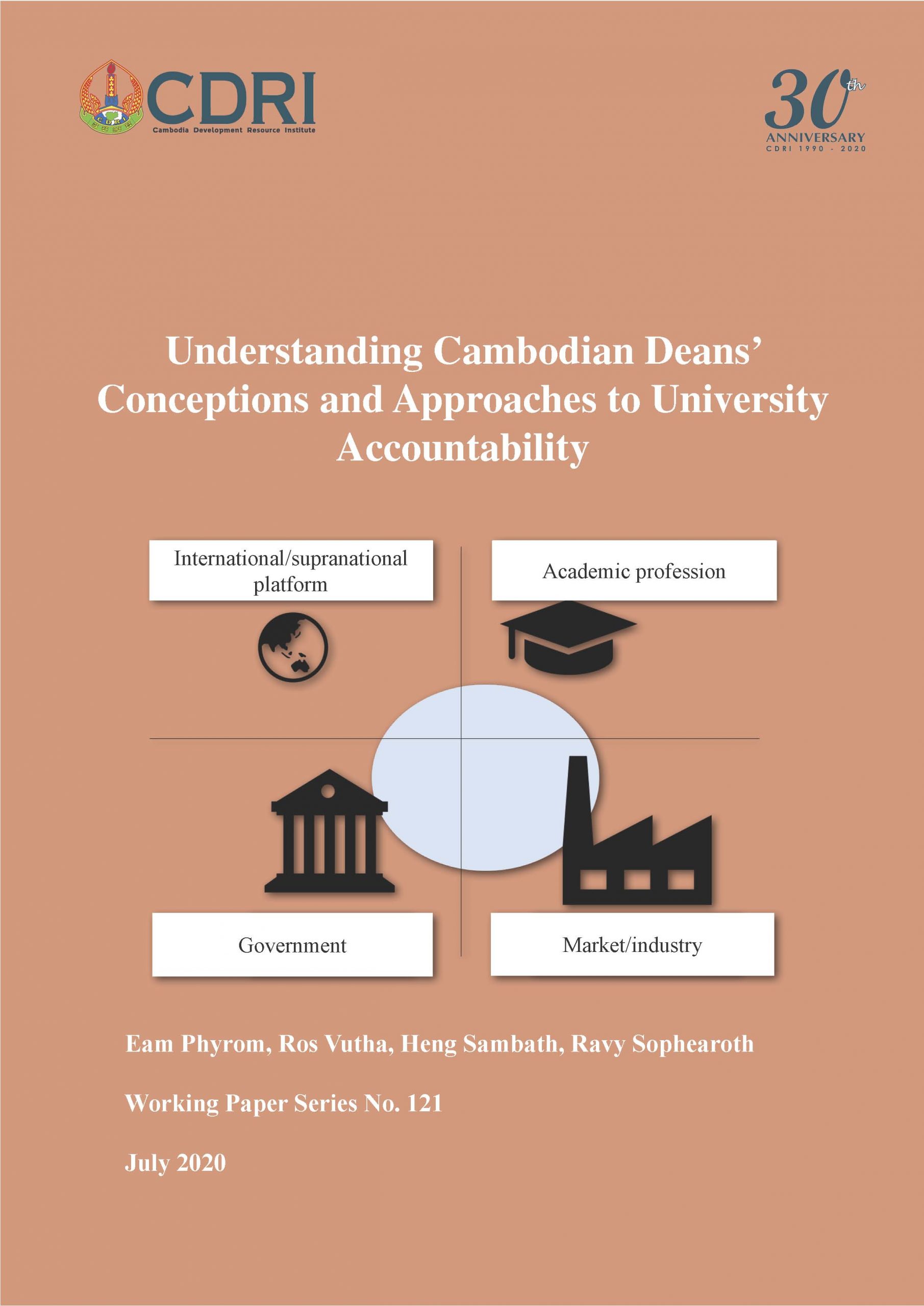
Understanding Cambodian Deans’ Conceptions and Approaches to University Accountability
University accountability in Cambodia, in both a theoretical and practical context, is ruled by complexity and there is no common understanding of what it means and how it should be assessed. This study examines how accountability in Cambodian universities is oriented towards different accounting constituencies – the government, the market, academ...
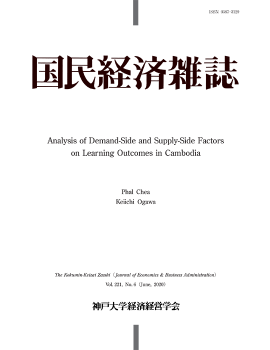
Analysis of Demand-Side and Supply-Side Factors on Learning Outcomes in Cambodia
The study applies the Hierarchical Linear Modeling(HLM) approach using the international learning assessment survey, PISA for Development (PISA-D), to examine the effects of demand-side and supply-side factors associated with academic performance in Cambodia. Findings from the study suggest that students' characteristics and family background are g...
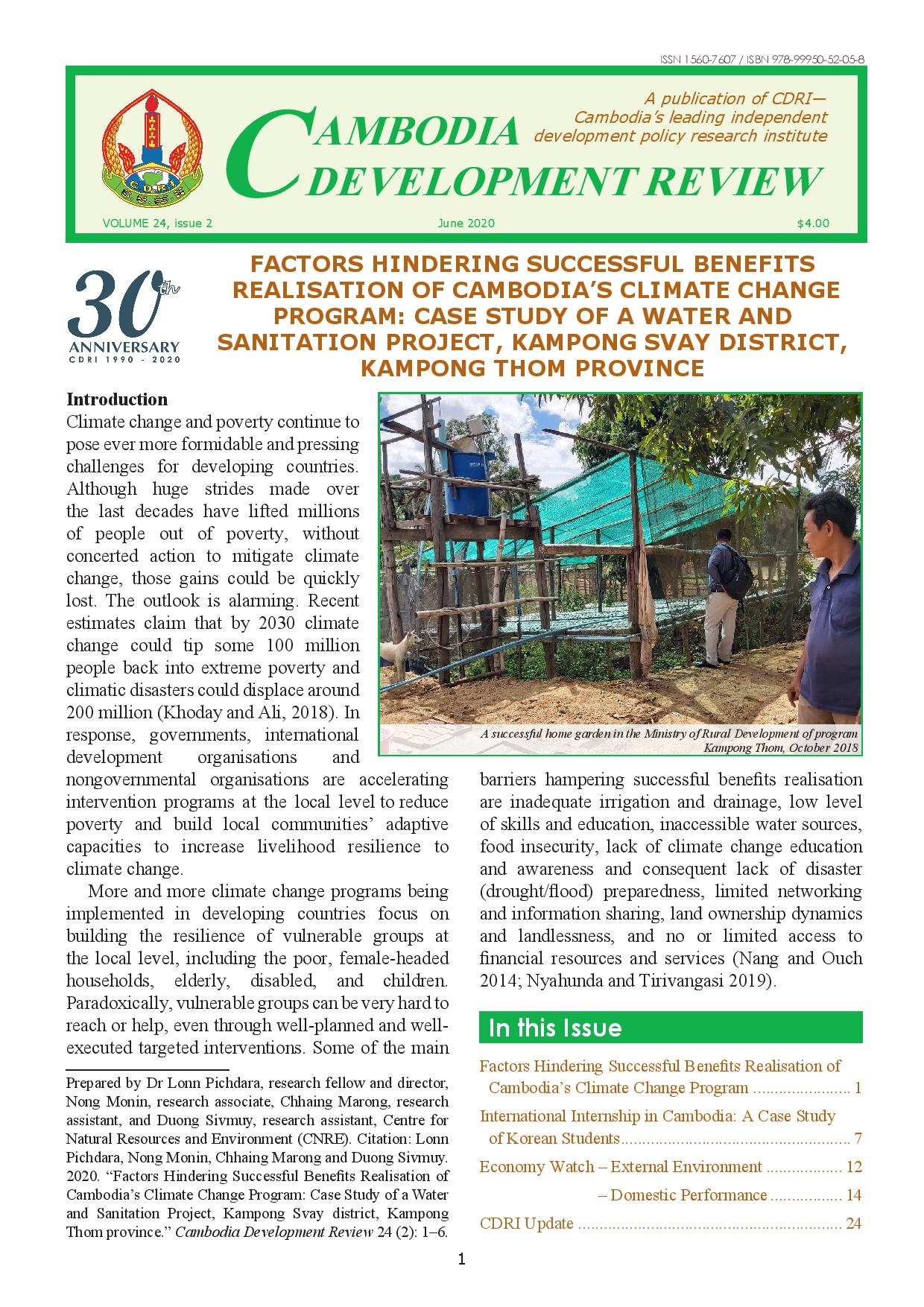
Factors Hindering Successful Benefits Realisation of Cambodia's Climate Change Program
This article draws on a qualitative study conducted to assess the impact of climate change programs in Cambodia, including the MRD’s pilot program in Kampong Svay district (CDRI, MRD and UNDP 2019). It summarises the main lessons learned and discusses the main factors hindering poor and vulnerable program beneficiaries from replicating demonstr...

